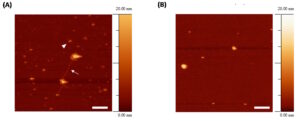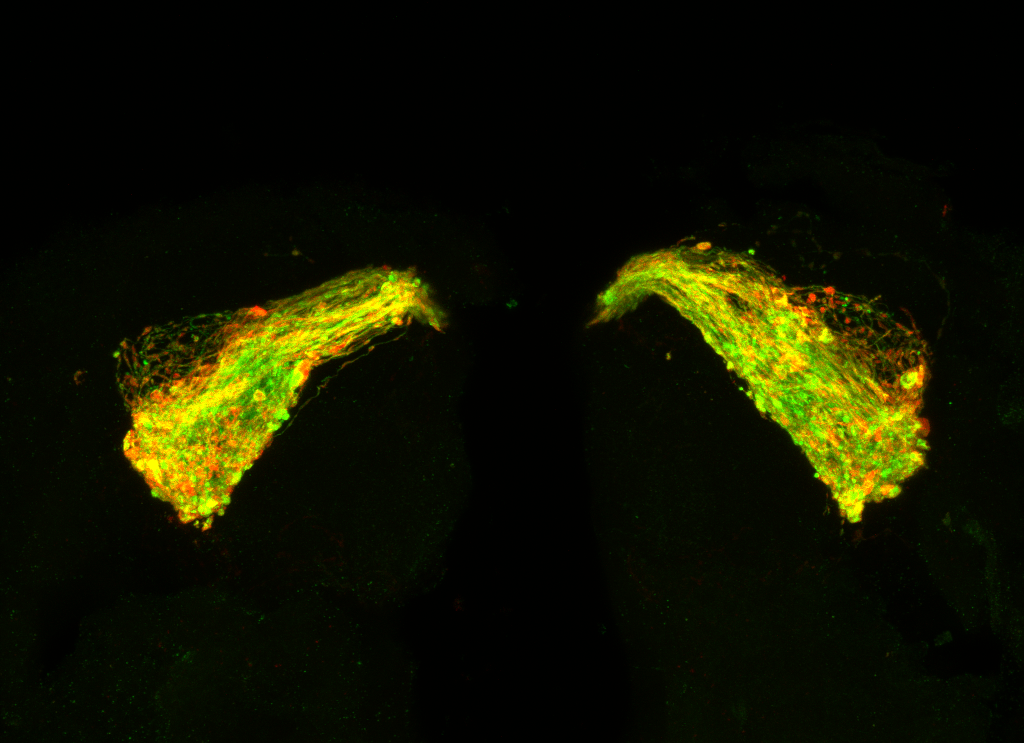Hartley News Online Your alumni and supporter magazine
One in three children born today can expect to develop dementia in their lifetime. That is a sobering and deeply concerning statistic.
We desperately need more ways of catching the disease earlier and more effective treatments when it is diagnosed. And yet, funding for dementia research lags behind other diseases like cancer and heart disease.
However, a recent breakthrough by researchers at the University of Southampton is giving new hope to future generations who will face this devastating condition.
The team have developed a new drug that could potentially slow or even stop the progression of Alzheimer’s Disease (AD).
The drug, called RI-AG03, targets two critical areas of the Tau protein, a key driver of neurodegeneration.
The study, recently published in Alzheimer’s & Dementia: The Journal of the Alzheimer’s Association, found the drug prevented the buildup of Tau proteins in both laboratory and fruit fly studies.
A big step forward
Tau proteins are essential for the structure and function of brain cells, but in AD, they malfunction and clump together. These clumps, known as neurofibrillary tangles, block the communication between the brain cells, starving them of the nutrients and signals they need to survive.
As more brain cells die, memory loss, confusion and other behavioural symptoms of AD get worse.
There are two specific ‘hotspots’ of the Tau protein where this clumping tends to happen and currently AD treatments only target one or the other. But RI-AG03 is the first drug to successfully target both areas, potentially making it more effective.
Dr Anthony Aggidis, lead author of the paper and Visiting Researcher at the University of Southampton said: “Our research represents an important step toward creating treatments that can prevent the progression of diseases like Alzheimer’s.
“By targeting both of the key areas of the Tau protein, this unique approach could help address the growing impact of dementia on society, providing a much-needed new option for treating these devastating diseases.”
Pioneering drug development
Our scientists have worked alongside Lancaster University, Nottingham Trent University, Tokyo Metropolitan Institute of Medical Science and UT Southwestern Medical Centre throughout the study.
RI-AG03 was first developed using computational biology and tested in lab dishes where it showed promising results. To test its effectiveness in cells within a living organism, researchers gave the drug to fruit flies, which had pathogenic Tau. The researchers found the drug slowed neurodegeneration and extended the lives of the flies by around two weeks – a significant extension considering the insects usually live for around 40 to 50 days. They also found the drug reduced the amount of Tau clumps in the flies’ brains.

To make sure this wasn’t unique to fruit flies, the drug was tested in a biosensor cell – a type of living human cell line that is engineered to detect harmful Tau formation. Here too, they found the drug successfully penetrated the cells and reduced the aggregation of Tau proteins.
Another major advantage of RI-AG03 is that it is more targeted than current treatments, potentially making it safer, with fewer side effects.
The team believes their work will have a significant impact on drug discovery efforts in the field of neurodegenerative diseases and now plans to test RI-AG03 further before proceeding to clinical trials.
Amritpal Mudher, Professor of Neuroscience at the University of Southampton and one of the lead authors on the paper, added: “For the first time, we have a drug which is effective in inhibiting both these regions. This dual-targeting mechanism is significant because it addresses both domains that stimulate Tau aggregation, potentially paving the way for more effective treatments for neurodegenerative diseases like Alzheimer’s.
Strength in medical innovation at Southampton
Here at the University of Southampton, we have a strong heritage in interdisciplinary research, bringing together fields such as AI, chemistry, mathematics and medicine to tackle pressing medical challenges such dementia and cancer. The collaborative approach to developing RI-AG03 is one example of Southampton’s cross-disciplinary leadership. By working together, we can – and will – make more breakthroughs happen faster.


